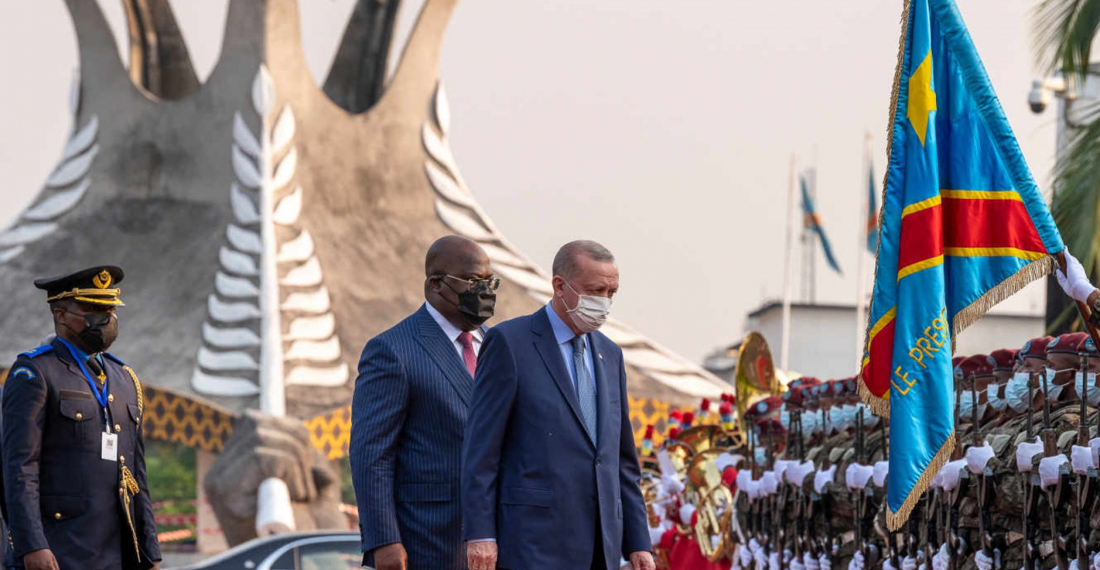President Recep Tayyip Erdogan is currently on a four-day tour to three African countries: the Democratic Republic of Congo, Senegal, and Guinea-Bissau, after receiving invitations from his African counterparts.
This visit is an opportunity to strengthen relations between African countries and Turkey, especially on security and economic issues.
Accompanied by government officials and Turkish businessmen, President Erdogan struck several agreements at the end of his weekend visit in Kinshasa with his DRC counterpart, Felix Tshisekedi. Among them is a military framework agreement, a protocol on financial aid, and a cooperation deal on the defence industry, according to Congolese sources.
Tshisekedi has publicly announced that he has requested Turkish assistance to combat terrorist militias in the east of the country, which threatens the safety of civilians. Indeed, Turkey's defence should therefore expand further in Africa, as it has been gradually spreading out since the establishment of its first African military base in Somalia in 2017.
However, Turkish influence goes beyond that, with ambitions in economic matters.
The two parties have steadily increased their trade since the African Union declared Turkey a "strategic partner" in 2008. For the past 20 years, the volume of its trade with the continent has increased from $2 billion to at least $25 billion today.
In 2021, according to the Turkish pro-government Daily Sabah, Turkish exports to countries in the region soared 31% to $7.9 billion year-on-year, while its imports were up 10% to $2.8 billion in the same period.
These figures correlate perfectly with intense Turkish diplomatic work on the continent, as since 2005, Turkey has opened more than 40 embassies on the African continent, while expanding the network of its national airline Turkish Airlines.
After visiting Senegal today, Erdogan is expected to continue his charm offensive in Guinea-Bissau in the coming days, thus asserting his presence in the region at a time when many Western forces - French and European - are becoming increasingly unpopular.
Sources: CommonSpace.eu with RFI (Île-de-France), Daily Sabah (Istanbul), Le Monde (Paris)






